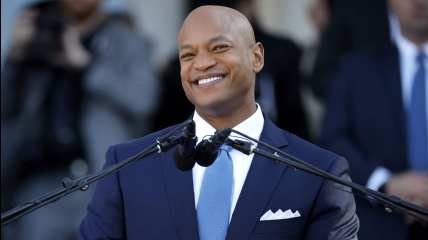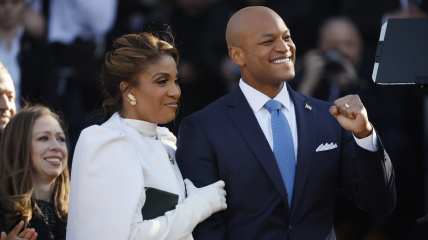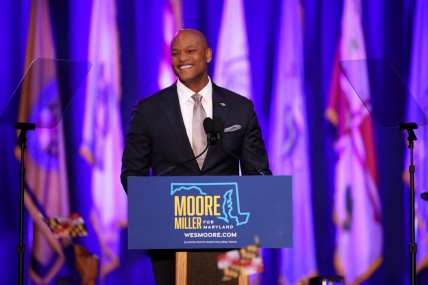Wes Moore, America’s only Black governor, has a bright future
OPINION: Moore appeals to the best in us with calls for unity and cooperation to solve problems, rather than calling for confrontation and divisiveness, as Trump and so many Republican candidates do.
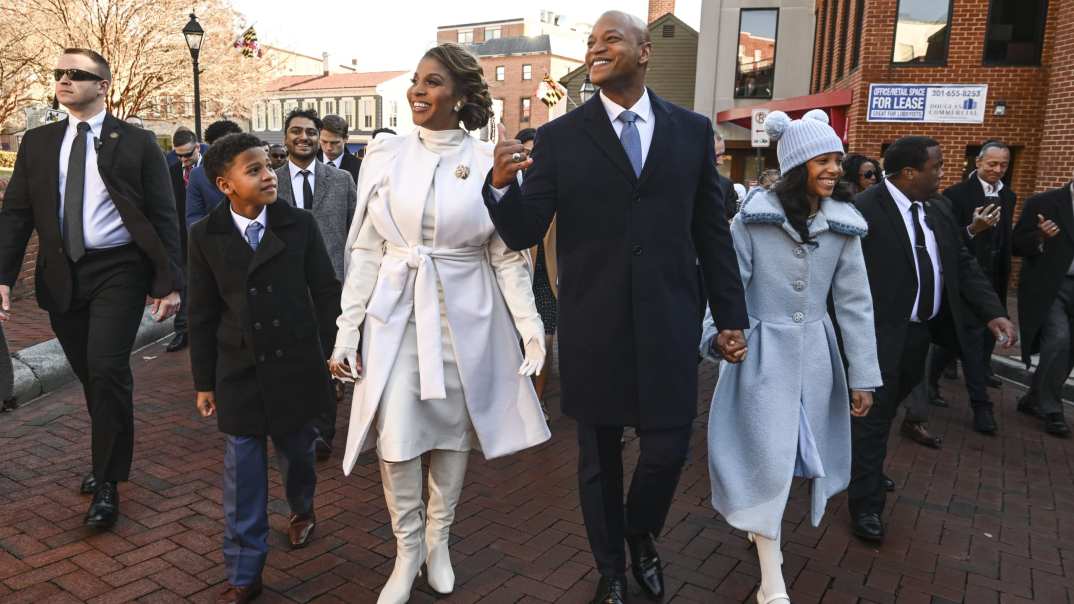
Editor’s note: The following article is an op-ed, and the views expressed are the author’s own. Read more opinions on theGrio.
About 2,400 people have served as governors in U.S. history, but only six have been Black. The sixth — Democrat Wes Moore — became governor of Maryland on Wednesday with a solid-gold resume, ambitious goals and a Democratic-controlled legislature that will work in partnership with him.
Moore is only the third Black man to be elected as an American governor (there have been no Black women governors) and the only Black governor currently in office. Three Black lieutenant governors — including two from my home state of Louisiana during Reconstruction — moved up to the top state job after governors left office or were temporarily out-of-state or incapacitated.
Four other Black Democrats who ran for governor in November in Alabama, Arkansas, Georgia and Iowa were defeated by Republicans. Running statewide for any office is tough. But in due time, more Black people will be able to compete and win in the future. Wes Moore’s victory offers a playbook for future Black candidates.
Moore is only 44, meaning he could have decades of government service ahead of him. If his policies prove popular and successful in Maryland, it’s easy to imagine him running for president years from now.
After being introduced by his friend, Oprah Winfrey, Moore delivered a powerful inaugural address Wednesday — just two days after America celebrated the Martin Luther King Jr. holiday — in front of the state house in Annapolis. The inauguration illustrated that while systemic racism remains a serious problem, our nation has come a long way since Dr. King and many others worked tirelessly to open the doors of the American Dream wider for Black people.
Moore said in his inaugural address that it was “unacceptable” that white families in Maryland have eight times the wealth of Black families, that one out of eight children in the state is impoverished and that 42 states have lower unemployment rates.
Moore also said he would “change the inexcusable fact that Maryland incarcerates more Black boys than any other state,” while at the same time working to reduce violent crime and make police departments more effective and accountable. He promised to improve public schools for all children, increase the state’s minimum wage, strengthen Maryland’s economy and fight climate change by promoting clean energy.
Acknowledging Maryland’s history as a state where slavery was not abolished until 1864, Moore took the oath of office on a Bible once owned by Frederick Douglass, who escaped enslavement in Maryland in 1838 and became a leading abolitionist, author and advocate for equal rights for Black Americans and women.
“We are blocks away from the Annapolis docks, where so many enslaved people arrived in this country against their will,” Moore said. “And we are standing in front of a capitol building built by their hands. We have made uneven and unimaginable progress since then.”
While 48% of Maryland’s population is Black, Moore captured 64.5% of the vote in the November election against far-right MAGA Republican extremist Dan Cox, who was endorsed by former President Donald Trump.
Moore’s victory proves — just as the election of President Barack Obama and other Black officials proved — that it is possible for Black candidates to build multiracial coalitions to obtain enough votes from non-Black voters to win elections.
Cox’s extremism, Maryland’s large Black population — and the fact that Democrats outnumber Republicans by 2-to-1 among registered voters in the state — certainly helped Moore get elected.
But to his credit, Moore campaigned as an inclusive candidate determined to improve the lives of all Marylanders of every race and ethnicity, appealing to independents and moderate Republicans as well as Democrats. He campaigned on the slogan “leave nobody behind.”
With a contagious smile, Moore radiates optimism and hope. He appeals to the best in us with calls for unity and cooperation to solve problems, rather than calling for confrontation and divisiveness, as Trump and so many Republican candidates do.
And Moore understands that elections are about the future, about telling the truth and about improving the lives of voters — not about airing grievances and lies from years past. As we saw in many midterm election races, Republican candidates who joined Cox in denying Trump’s 2020 election loss often went down to defeat themselves.
Moore’s inspiring life story and many accomplishments also appealed to voters across racial and political party lines. After his father’s sudden death from a treatable virus when the future governor was only 3, his mother left Maryland with her young son and two daughters to live with her parents in New York City.
Moore went on to graduate Phi Beta Kappa from Johns Hopkins University after playing for two seasons on the football team and then earned a Rhodes Scholarship to Oxford University in England, where he received a master’s degree.
Joining the Army after the Sept. 11, 2001 terrorist attacks, Moore led troops in combat as a paratrooper and captain in Afghanistan from 2005 to 2006. He then served as a White House fellow, working on national security and international relations.
Moore launched a business in Baltimore that helped underserved students succeed in college, worked in finance for Deutsche Bank and Citigroup, and served for four years as CEO of the Robin Hood Foundation while the group provided over $600 million in assistance to help families escape poverty. He’s also authored five books over the years.
I’ve been around a lot of politicians and not many have the charisma of Wes Moore. He reminds me of Obama in 2008, who defied the odds and the expectations and accomplished the seemingly impossible dream of becoming our nation’s first Black president.
Moore is just beginning his career as an elected official. But keep an eye on him. Someday the young governor may follow in Obama’s footsteps and wind up in the White House.
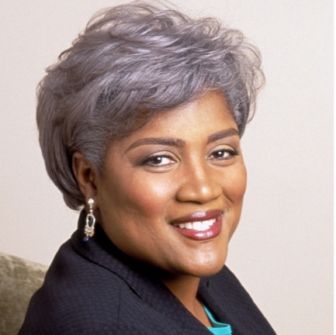
Donna Brazile is an ABC News Contributor, veteran political strategist, an adjunct professor at Georgetown University, and the King Endowed Chair in Public Policy at Howard University. She previously served as interim Chair of the Democratic National Committee (DNC) and of the DNC’s Voting Rights Institute. She managed the Gore campaign in 2000 and has lectured at more than 225 colleges and universities on race, diversity, women, leadership and restoring civility in politics. Brazile is the author of several books, including the New York Times’ bestseller “Hacks: The Inside Story of the Break-ins and Breakdowns That Put Donald Trump in the White House.” @DonnaBrazile
TheGrio is FREE on your TV via Apple TV, Amazon Fire, Roku, and Android TV. Please download theGrio mobile apps today!
